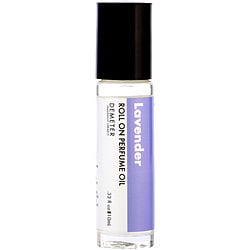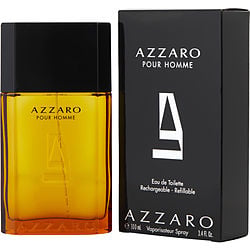An Olfactory Experience
Our journey with scents kicks off in the cradle of civilisation. Ancient cultures, like the Egyptians and Mesopotamians, were pioneers in the use of fragrances, relying on the power of scent for rituals, medicine, and even love. Think incense wafting through temples or scented oils adorning royalty. These folks knew their way around a good smell!
A Journey Through Fragrance History

This article is part of a fragrance blog I built myself — I’ll explain how at the end if you’re curious.
For as long as I can remember, I’ve been captivated by the story of fragrances—their origins, evolution, and the reasons why people have cherished perfumes and aftershaves for centuries. This fascination led me to explore how different cultures and eras have imbued scent with meaning, using it for everything from ritual and protection to status and personal expression.
This journey into the olfactory world is like discovering a hidden language that speaks to our most profound memories and emotions, and I’m excited to share it with you here.
For me, wearing perfume isn’t just for special occasions—it’s part of my everyday ritual, whether I’m heading out or staying in. There’s something about a favourite scent that instantly lifts my mood and adds a little extra enjoyment to the day.
I think that’s why so many of us, both men and women, are drawn to fragrance. It’s not just about smelling nice; it’s a small act of self-care that makes us feel good, grounded, and even a bit more like ourselves.
Related Article: Chanel No. 5 Perfume History
From Trade Routes to Cultural Staples: The Evolution of Fragrance Through History
Fast-forward a few thousand years, and the world of fragrance saw transformations with the Silk Road. Trade routes became scent highways, with spices and perfumes as coveted as gold.
These exchanges expanded the palette and reach of various scents, turning them into status symbols and cultural staples. Middle Eastern, Indian, and Chinese influences started seeping into European lands, ushering in a new era of olfactory adventures.
It wasn’t just about smelling nice. The scent was believed to have protective qualities against diseases back when hygiene was, let’s say, not as advanced as it is today. The ‘Great Stink’ of old cities led to the creation of colognes and perfumes as essential rather than luxury items. Talk about necessity driving innovation!
The Renaissance period blew the lid off fragrance innovation, almost like a rebirth of perfume artistry. Perfumes transitioned from medicinal to luxury, with France taking centre stage. The art and science of making perfumes became more refined, setting standards still revered today. France isn’t just known for its wine!
Diving into the origins of our olfactory experiences provides a foundation for understanding how deeply rooted and historically significant scents are in our world. It’s fascinating to see how simple rituals evolved into a complex industry that captivates our senses.
The Science Behind Scent: Understanding Our Unique Olfactory System
Our sense of smell might seem straightforward, but a sophisticated process happens in our noses. Your olfactory system kicks into gear when you catch a whiff of fresh coffee or your favourite perfume. Each scent carries molecules that travel up to your nasal cavity, where olfactory receptors interpret these tiny signals. What happens next is like magic—the brain decodes these signals, giving us a unique perception of scent.
Have you ever wondered why the smell of rain might thrill one person but leave another indifferent? That’s because our scent preferences are as unique as our fingerprints. Genes are crucial in making our olfactory receptors genetically diverse, meaning each person might smell the same thing differently. Mind-blowing, right?
And there’s more at play than just genetics. Our environment and experiences shape many of our scent preferences. Imagine the comforting aroma of your grandmother’s apple pie or the nostalgic smell of your childhood favourite candy. These experiences become engraved in our olfactory memory, giving particular scents a personalised twist.
Let’s not overlook other intriguing factors like memory and emotion. The part of the brain that processes scents is linked to areas that handle emotions and memories. That’s why fragrances can transport usback to a specific moment or make us feel a certain way—almost like time travel for the senses.
Related Article: Psychology Of Perfume
So, when you’re sniffing the air with delight or wrinkling your nose at an unpleasant smell, know this: your olfactory system and life experiences are putting on one complex, nuanced show. Embrace this unique aspect of being human, and maybe consider how you can use scent to enhance your daily life.
Personal and Cultural Preferences in Fragrances
When picking a scent, it’s not just your nose making the call. Personal experiences shape which smells are pleasant and which are not-so-pleasant to each of us. For instance, if you grew up baking cookies every Sunday, a whiff of vanilla or chocolate might be more comforting for you than for someone else.

Beyond personal moments, culture plays a massive role in which scents we lean towards. Different regions elevate aromas based on local flora, cuisine, and traditions. Imagine the tangy, spicy notes of South Asian countries or the fresh, citrusy vibes often associated with the Mediterranean. Regional smells reflect the lifestyle and local history, adding layers to scent preferences.
The fragrance a person wears or loves also tells a story about where they come from and what resonates with them emotionally and culturally. It’s why perfumes can vary so much from one place to another, with no scent reigning supreme globally.
All these factors blend to give scents their psychological and emotional clout. Think about how some scents can uplift your mood, help you relax, or even boost your confidence. Psychological studies suggest that certain scents can trigger positive feelings—like lavender for relaxation or citrus for invigoration.
Related Article: The Fragrance Wheel
Harnessing the right scent could be your secret weapon for enhancing your personal spaces and how you feel every day. Be curious and adventurous with scent choices. Explore unfamiliar fragrances and see which emotional reactions they evoke. You might be surprised at what you discover about yourself and those around you.
The Evolution of Scent Trends: Reflecting Cultural Shifts and Societal Values
In recent decades, fragrance trends have been increasingly shaped by the world around us. The 20th century, for instance, saw an embrace of bold, musky scents that reflected a growing culture of independence and individualism. However, the 21st century has ushered in a significant shift towards minimalism and natural ingredients, echoing society’s increasing awareness of health, sustainability, and environmental impact. Consumers now seek more than just a pleasant smell; they look for brands that align with their values, from eco-friendly packaging to ethically sourced ingredients.
Sustainable and Inclusive Fragrance Design
Many fragrance houses are responding by prioritising sustainability in production and transparency in ingredient sourcing. They aim to reduce their environmental footprint and focus on inclusivity, producing gender-neutral scents that cater to a diverse audience. These shifts aren’t just trends—they reflect bigger societal changes, showing how our scent preferences mirror our evolving world.
The Rising Popularity of Functional Fragrances
Another fascinating trend is the rise of functional fragrances designed for olfactory pleasure and specific psychological benefits, like relaxation, focus, or stress relief. As mental health and wellness become central aspects of modern life, people are turning to scents as tools for self-care and emotional well-being, adding a new layer of purpose to fragrance beyond mere enjoyment.
The Future of Olfactory Experiences
Scent technology is ripping through the textbook of olfactory experiences. Imagine perfumes that aren’t fixed but adjust according to your mood, the weather, or even the time of day. We’re stepping into a realm where fragrances might change dynamically to match our vibe in real time, giving personal scent networks a new meaning.
Advancements in technology now mean that personalisation is coming to the forefront. Fragrance brands are diving into creating adaptable scents for individual preferences. With the help of data and AI, a future with hyper-personalised fragrances tailored to your genetic makeup or mood isn’t just a dream anymore.
And it’s not just personal use that’s being revolutionised. Innovative scents are set to play a role in public spaces, retail environments, and even virtual reality. Imagine walking through a store aisle and experiencing tailored fragrance blasts that enhance your shopping experience or using scent to amplify immersion in virtual worlds.
The future promises a sensory upgrade that’s both exciting and innovative. But how should you navigate these developments? Stay open and curious. Experiment with these advancements to see how they can enhance your sensory experiences, whether by calming your mind, boosting your confidence, or simply refreshing your surroundings.
As olfactory technology grows, watch how it might alter fragrances and how we interact with the world around us. There’s a promising horizon for scent enthusiasts, where the art of smell not only reflects our individuality but also enhances our multi-sensory experiences.
How This Blog Was Created
Fragrances With Love started as a personal hobby — sharing my love of perfume, affordable finds, and fragrance trends. I didn’t start with a background in websites, marketing, or blogging.
This site was built by writing about something I genuinely enjoy. I use one platform to host my website, write my blog posts, and learn how to monetise content step by step, all in one place.
If you enjoy writing and have ever thought about starting a blog around something you love, you can see the platform I used to create this site below.
How I Created Fragrances With Love
Stay in the Loop with the Latest in Fragrance
Love discovering new scents and learning about the fascinating world of fragrance? Sign up for our newsletter to get exclusive updates, scent trends, expert tips, and insider news delivered to your inbox. Whether you’re a fragrance fanatic or just starting your journey, our newsletter is your go-to source for all things aromatic!

